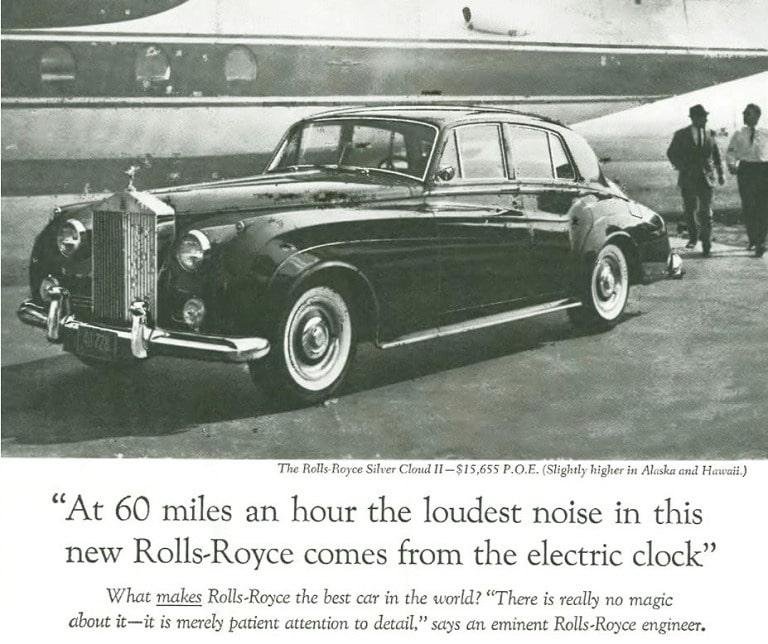You’ve seen their work everywhere—on billboards, in your inbox, across websites—yet most people have no idea who creates these words that make you click “buy now” or sign up for that newsletter.
The person behind these persuasive messages? A copywriter. But here’s what might surprise you: their job goes way beyond just writing catchy slogans.
Every day, these word wizards shape how companies talk to you. They craft the messages that stick in your head, the emails you actually want to read, and the product descriptions that make you reach for your wallet.
Yet their role remains one of the most misunderstood in the business world.
So, what does a copywriter do? Let’s pull back the curtain on this profession, explore their daily tasks, and discover why businesses can’t survive without them.
Disclaimer: If you buy any products through links on this site, I may earn a commission. But it doesn't make any difference to your cost, and it helps me keep this blog running. So you could always read my articles for free.
What is a copywriter?
Before diving into what copywriters do, you need to understand who they are. Let’s start with a clear definition and explore what makes someone a copywriter.
A copywriter is a professional writer who creates text designed to persuade people to take action.
That action might be buying a product, signing up for a service, or simply clicking a link. Think of them as salespeople who use written words instead of face-to-face conversations.
Here’s what a copywriter does that sets them apart from other writers: while journalists inform and novelists entertain, copywriters convince.

For example, when you read a product description on Amazon that makes you want to buy something immediately, that’s a copywriter’s work. Similarly, the email subject line that made you stop scrolling and click? That’s also part of what copywriters do.
These professionals work across different industries and formats. Some specialize in writing website content, while others focus on social media posts or advertising campaigns.
Take the case of a tech company launching a new app. They’ll hire a copywriter to explain complex features in simple words that make people want to download it.
What’s interesting is that copywriters often work behind the scenes. You won’t see their names on billboards or email campaigns, but their words influence your decisions every day.
From the tagline of your favorite brand to the instructions on your shampoo bottle, copywriters shape how companies communicate with you.
What does a copywriter do?
Now that you know the answer to ‘What is a copywriter?’ let’s explore what they actually do day-to-day. From writing compelling headlines to researching target audiences, their responsibilities span far beyond just putting words on a page.
Core writing responsibilities
At the heart of the job, copywriters create various types of content. They write website pages that explain products and services clearly.
For instance, when you visit a software company’s homepage and immediately understand what they offer, that’s effective copywriting at work.
But, beyond websites, what does a copywriter do? They also craft email campaigns that land in your inbox. These aren’t random messages—copywriters carefully plan email sequences that guide you from first contact to purchase.
They also write social media posts, blog articles, and video scripts that keep audiences engaged.
Product descriptions represent another major responsibility. Take any e-commerce site. Behind every compelling product listing is a copywriter who transformed boring specifications into benefits you care about. They turn “256GB storage” into “never delete another photo again.”
Research and strategy work
Before writing a single word, copywriters dive deep into research. They study the target audience to understand what motivates them, what problems they face, and what language resonates with them.
For example, writing for teenagers requires a completely different approach than writing for retirement-age professionals.
Market research forms another crucial part of their job. What copywriters do in this process is analyze competitors, identify industry trends, and spot gaps in the market.
This research helps them position products uniquely and find angles that haven’t been overused, like this advert by international money transfer service, TransferWise.

Additionally, what a copywriter does is work closely with marketing teams to develop content strategies. This means planning what content to create, when to publish it, and how different pieces work together to achieve business goals.
Collaboration with other teams
Copywriters rarely work alone. They regularly meet with clients or company stakeholders to understand project requirements and business objectives. These conversations help them grasp not just what to write, but why it matters.
Design collaboration happens daily, too. Copywriters work with graphic designers to ensure words and visuals complement each other.
For instance, if a designer creates a minimalist layout, the copywriter adjusts their text to match that clean, simple style.
Aside from this, what does a copywriter do while collaborating with other teams? They coordinate with marketing managers, SEO specialists, and developers. Each team member brings different expertise, and copywriters must incorporate everyone’s input while keeping the message clear and compelling.
Editing and revision duties
Writing the first draft is just the beginning. Copywriters spend significant time refining their work based on feedback from clients, team members, and test results.
They might rewrite a headline dozens of times to find the version that performs best.
Proofreading represents another key responsibility. Beyond checking grammar and spelling, copywriters ensure consistency in tone, style, and brand voice across all materials. They act as quality control for all written communication.
A/B testing often guides their revisions. What copywriters do in this process is compare how different versions perform. So they could learn what resonates with audiences and continuously improve their approach.
Specialized tasks by industry
Different industries require unique copywriting skills. In e-commerce, copywriters focus on product descriptions that drive sales and reduce returns. They highlight benefits, address common concerns, and create urgency without being pushy.
Healthcare copywriters face different challenges. They must explain complex medical information in ways patients understand while following strict regulatory guidelines. Every claim needs backing from approved sources.
When it comes to the tech industry, what copywriters do is translate complicated features into clear benefits. Instead of listing technical specifications, they show how those features solve real problems.
For example, rather than saying “cloud-based infrastructure,” they might write “access your files from anywhere.”
Project management aspects
Copywriters juggle multiple projects simultaneously. They might write website copy for one client in the morning, social media posts for another after lunch, and email campaigns in the afternoon. Strong organizational skills keep everything on track.
Meeting deadlines is non-negotiable. Marketing campaigns often have fixed launch dates, and delayed copy can derail entire projects. Copywriters must manage their time effectively to deliver quality work on schedule.
They also maintain project documentation, track revisions, and organize files for easy access. This administrative work ensures smooth handoffs to other team members and helps maintain consistency across projects.
Measuring success
Finally, copywriters analyze how their work performs. They track metrics like click-through rates, conversion rates, and engagement levels. This data shows what’s working and what needs improvement.
Based on these insights, they adjust their approach for future projects. If a certain headline style consistently outperforms others, they’ll use similar techniques more often. This continuous learning is a key part of what a copywriter does, making them more effective over time.
Through all these responsibilities, copywriters balance creativity with strategy, working to create content that both engages readers and achieves business objectives.
Types of copywriting
Copywriting isn’t a one-size-fits-all profession. Different businesses need different types of copy, and many copywriters specialize in specific areas. Let’s explore the main types of copywriting you’ll encounter in the field.
Direct response copywriting
This type focuses on getting immediate action from readers.
So what does a copywriter do in direct response copywriting, exactly? They write sales pages, landing pages, and ads designed to make you buy, sign up, or click right away.

These copywriters master psychological triggers and persuasion techniques. They create urgency, highlight benefits, and overcome objections—all within a single piece of content.
Their success is easy to measure: either people take action or they don’t.
Brand copywriting
Brand copywriters shape how companies communicate their personality and values. They develop taglines, mission statements, and brand guidelines that keep messaging consistent across all channels. Think about Nike’s “Just Do It”—that’s brand copywriting at its finest.
Besides creating memorable slogans, what does a copywriter do in brand copywriting? Aside from this, they write about pages, company stories, and brand manifestos. Their work builds emotional connections between companies and customers over time, rather than pushing for immediate sales.
Content marketing copywriting
Here’s where copywriting meets helpful information. Content marketing copywriters create blog posts, guides, and resources that attract potential customers by solving their problems.
For instance, a plumbing company might publish articles about preventing frozen pipes, subtly establishing their expertise.
This approach builds trust before selling. By providing valuable information first, companies position themselves as helpful experts rather than pushy salespeople.
Content marketing copywriters balance being informative with gently guiding readers toward products or services.
SEO copywriting
SEO copywriters combine persuasive writing with search engine optimization. They research keywords people search for and naturally incorporate them into compelling content. Take this article, for example—it includes relevant terms while still reading naturally.
Beyond keywords, what is a copywriter’s role in SEO? They understand technical aspects like meta descriptions, header tags, and content structure. Their goal? Creating content that ranks well in search results while still engaging human readers.
Social media copywriting
Social media demands its own style. In this case, what copywriters do is craft short, engaging posts that stop people from scrolling. They understand each platform’s unique culture—what works on LinkedIn won’t necessarily work on TikTok.
They also write social media ads, profile descriptions, and community responses. Quick wit, cultural awareness, and the ability to convey messages concisely are essential skills here.
Technical copywriting
Some products require detailed explanations. So, what a copywriter does in Technical copywriting is translate complex features into clear benefits for software, electronics, and specialized equipment.
They write user manuals, product specifications, and help documentation.
What sets them apart is their ability to understand technical details while writing for non-technical audiences. They bridge the gap between engineers and everyday users.
Email copywriting
Email copywriters specialize in messages that get opened, read, and acted upon. From attention-grabbing subject lines to compelling body copy, they understand what makes people engage with emails rather than hitting delete.
Aside from this, creating welcome sequences, promotional campaigns, and newsletters is a crucial part of what copywriters do in email copywriting. This way, they can maintain relationships with subscribers while driving business results.
Each type requires different skills and approaches, but all share the same goal: using words to influence reader behavior and achieve business objectives.
Top copywriting skills
Success in copywriting requires more than just good grammar. The best copywriters combine various skills that help them understand audiences, craft compelling messages, and deliver results. Here are the essential skills you need to thrive in this field.
Writing and language skills
Strong writing forms the foundation of copywriting. You need to express ideas clearly and concisely, choosing words that resonate with your target audience.
This means writing at the appropriate reading level—sometimes simple and direct, other times more sophisticated, depending on who you’re addressing.
Grammar and spelling matter, but they’re just the basics. Great copywriters understand rhythm, pacing, and flow.
They know when to use short, punchy sentences for impact. And when longer sentences work better to explain complex ideas smoothly.
Vocabulary flexibility also proves crucial. You might write for doctors one day and teenagers the next. Each audience requires different word choices, tone, and style. The ability to adapt your language makes you valuable across industries.
Research and analytical abilities
Before writing anything, you need to understand what you’re writing about. Research skills help you quickly grasp new topics, products, and industries.
For instance, if you’re writing for a cybersecurity company, you need to understand enough about data protection to write credibly.
Market research goes beyond product knowledge. You analyze competitors, identify what’s already been said, and find fresh angles; all of this is part of what a copwriter is. This prevents you from creating generic copy that sounds like everything else out there.
Data analysis has become increasingly important, too. Understanding metrics like conversion rates, click-through rates, and engagement helps you see what works. You then apply these insights to improve future copy.
Understanding psychology and persuasion
Copywriting is essentially applied psychology. You need to understand what motivates people, what fears hold them back, and what desires drive their decisions.
For example, people often buy based on emotion, then justify with logic—effective copy addresses both.
Persuasion techniques like social proof, scarcity, and reciprocity aren’t manipulation when used ethically. So, what copywriters do is use these tools to help people make decisions they’re already considering.
Knowing when and how to use these techniques separates average copywriters from exceptional ones.
Empathy plays a huge role here. By genuinely understanding your audience’s challenges and aspirations, you create copy that speaks directly to their needs rather than just listing product features.
Creativity and storytelling
While copywriting follows proven formulas, creativity sets your work apart. This doesn’t mean being clever for cleverness’s sake. Instead, what a copywriter does is find unique ways to present information that captures attention and maintains interest.
Storytelling represents one of the most powerful creative tools. People remember stories better than facts.
Take the case of a fitness app—instead of just listing features, you might tell the story of someone transforming their health using the app.
Creative problem-solving also matters. When clients have challenging requirements or tight constraints, you need to think differently to find solutions that work within those limitations.
Technical and digital skills
Modern copywriters need basic technical skills. Understanding SEO helps your content get found online. This includes keyword research, meta descriptions, and how to structure content for search engines without sacrificing readability.
Familiarity with content management systems, email platforms, and social media tools makes you more efficient. You don’t need to be a programmer, but knowing how your copy will be implemented helps you write more effectively.
Basic design awareness helps, too. So, what copywriters do is understand how copy and design work together; this lets them collaborate better with designers and create content that fits visual layouts.
Time management and organization
Copywriters typically juggle multiple projects with different deadlines. Strong organizational skills keep everything running smoothly. This means tracking project status, managing revisions, and ensuring nothing falls through the cracks.
Time estimation is equally important. Knowing how long different types of copy take helps you set realistic deadlines and avoid overcommitting. For instance, a simple email might take an hour, while a comprehensive website might need weeks.
Prioritization skills help when everything seems urgent. You learn to identify which tasks truly need immediate attention and which can wait; these skills are central to the question ‘What is a copywriter?’
Communication and collaboration
Clear communication with clients and team members prevents misunderstandings and revision cycles. This includes asking the right questions upfront, confirming project requirements, and setting clear expectations about deliverables.
Active listening helps you understand what clients really want, even when they struggle to articulate it. Sometimes what they say they need differs from what would actually solve their problem.
Accepting feedback gracefully and incorporating it effectively is crucial. Your first draft won’t always hit the mark, so what does a copywriter do in such a situation? As a professional copywriter, you should view feedback as an opportunity to improve rather than criticism.
These skills work together to create effective copy. While you might naturally excel at some more than others, developing all of them makes you a well-rounded copywriter capable of handling diverse projects and delivering consistent results.
How to become a copywriter
Breaking into copywriting doesn’t require a specific degree or years of experience. Many successful copywriters started in completely different fields. Here’s a practical roadmap to help you transition into this career, whether you’re starting fresh or switching professions.
Learn the fundamentals
Start by understanding what makes copy effective. Read books on copywriting, persuasion, and marketing psychology.
Classic titles like “The Copywriter’s Handbook” by Robert Bly or “Everybody Writes” by Ann Handley provide solid foundations.
Online courses offer structured learning paths. Platforms like Coursera, Udemy, and LinkedIn Learning have copywriting courses ranging from beginner to advanced levels. For example, you might take a general copywriting course first, then specialize in email or social media copy.
Besides formal courses, what copywriters do is study successful copy in the wild. Sign up for email lists from companies you admire. Save compelling ads you see online. Analyze what makes them work—is it the headline, the story, or the call to action?
Practice writing copy
Theory only takes you so far. So, what a copywriter does is write actual copy to develop their skills. Start by rewriting existing copy you think could be better.
Take a boring product description and make it compelling. Transform a dull email into something people want to read.
Create spec work for practice. Choose real companies and write sample pieces as if they hired you.
For instance, pick a local restaurant and write their website copy, social media posts, and email campaign. This gives you practical experience and potential portfolio pieces.
Writing daily sharpens your skills faster. Set aside 30 minutes each day to write something—headlines, email subject lines, or short ads. The consistent practice helps you develop your voice and speed.
Build your portfolio
Your portfolio proves you can write effective copy. But what does a copywriter do when they are just starting and don’t have client work? In that case, you can create your own samples. Quality matters more than quantity—five excellent pieces beat twenty mediocre ones.
Include variety in your portfolio. Show you can write different types of copy for various industries. For example, include a sales page for a software company, social media posts for a fashion brand, and email sequences for a fitness coach.
Make your portfolio easy to access. Create a simple website or use portfolio platforms like Contently or Journo Portfolio. Include brief explanations of each piece—what problem it solved and what results you aimed to achieve.
Gain real experience
Look for opportunities to write copy, even if unpaid initially, because what is a copywriter without experience? Volunteer for nonprofits that need help with their messaging. Many organizations desperately need better copy but can’t afford professional writers.
Small businesses in your area might trade services or products for copy. For instance, a coffee shop might give you free coffee for a month in exchange for rewriting their website. These projects are a part of what copywriters do, and they can provide real client experience and testimonials.
Consider internships at marketing agencies or in-house marketing departments. While internships might not pay well, they offer mentorship and exposure to professional copywriting processes.
Network and find clients
Building connections accelerates your copywriting career. Join online communities where copywriters gather—LinkedIn groups, Facebook communities, or forums like Reddit’s r/copywriting. Participate genuinely by sharing insights and asking thoughtful questions.
Attend local marketing meetups or virtual events. Even if you feel like a beginner, showing up helps you learn industry trends and meet potential clients or mentors.
Aside from this, what copywriters do is start telling people about their job. Update your LinkedIn profile, mention it in conversations, and let your network know you’re available for projects.
Often, your first clients come from existing connections who need copy or know someone who does.
Choose your path
As you gain experience, decide how you want to work. Freelancing offers flexibility and variety—you choose clients and projects. However, it requires business skills like invoicing, client management, and self-promotion.
Agency positions provide steady income and learning opportunities. You’ll work on diverse accounts with experienced teams. The structured environment helps new copywriters develop skills quickly.
In in-house roles, what copywriters do is take a deep dive into one company’s voice and strategy. This means, you’ll have to become an expert in your client’s industry and build long-term campaigns. This path suits those who prefer stability and deeper involvement.
Keep improving
The learning never stops in copywriting. Consumer behavior changes, new platforms emerge, and what worked yesterday might not work tomorrow. Stay curious and keep testing new approaches because it is a crucial part of what a copywriter does.
Track your results when possible. Did your email increase open rates? Did the landing page improve conversions? Use data to refine your skills and prove your value to clients.
Remember, becoming a copywriter is a journey, not a destination. Each project teaches you something new, and even experienced copywriters continuously refine their craft. Start where you are, use what you have, and improve as you go.
Final thoughts on what copywriters do
Copywriters shape the words that influence your daily decisions—from the emails you open to the products you buy. They combine creativity with strategy, psychology with persuasion, all while adapting their voice to connect with different audiences.
What copywriters do goes beyond writing catchy headlines. They research markets, understand human behavior, collaborate with teams, and measure results.
Some specialize in quick social media posts, others craft detailed sales pages, but all share the goal of turning readers into customers.
If you’re considering this career, know that success comes from continuous learning and practice.
The skills you need are learnable, the opportunities are growing, and businesses will always need professionals who can communicate their value clearly. Copywriting offers a path where your words directly impact business success.
Did I miss anything? Did you try these tips? Do you have any questions or comments? Share your thoughts below in the comments section.




